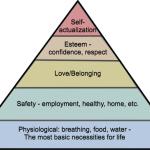
Advent, derived from the Latin word adventus, meaning “coming,” is a season observed in many Christian churches. It is a time of expectant waiting and preparation for the celebration of the birth of Jesus at Christmas. The historical and cultural roots of Advent date back to the 4th and 5th centuries when the church fathers instituted a period of fasting and penitence in preparation for the celebration of the Nativity. Over time, the observance of Advent has evolved to include various traditions and practices that emphasize the themes of hope, peace, joy, and love.
The significance of Advent lies in its dual nature – it serves as a time of reflection on the events leading up to the birth of Jesus while also directing our attention to the second coming of Christ. This season encourages believers to embrace a spirit of anticipation and readiness, not only for the commemoration of historical events but also for the future fulfillment of God’s promises. As we delve into the four essential themes of Advent, it becomes evident that this period offers a profound opportunity for spiritual growth and renewal, inviting us to cultivate a deeper understanding of our Christian faith.
The Historical and Cultural Roots of Advent
The origins of Advent can be traced to early Christian traditions, particularly in the Western Church. It was initially observed as a period of fasting and preparation for the Feast of the Nativity of Jesus, mirroring the solemnity and introspection associated with the Lenten season. Over time, the observance of Advent expanded to encompass a broader range of spiritual practices. These include the lighting of candles, reading of Scriptures, and engaging in acts of charity and compassion.
In the Middle Ages, Advent became more formalized, with the introduction of the Advent wreath and the use of specific liturgical colors, such as purple and rose, to symbolize penitence and rejoicing. The cultural significance of Advent also grew, as it became intertwined with various customs and traditions unique to different regions and denominations. Today, the observance of Advent continues to be a cherished part of the liturgical calendar, serving as a meaningful and enriching season for millions of Christians around the world.
Non-Catholic Christian denominations have also embraced the concept of the Advent. For my church’s Hanging of the Green service (which occurs on the first Sunday of Advent every year, I’ve written up a brief description of the four Advent themes to share with the congregation. We light candles and read the relevant Scripture every week, and it really adds to our worship as we look forward to celebrating Christmas. In this post, I’ve included a summary of each theme.
The Four Essential Themes of Advent
The four weeks of Advent are characterized by distinct themes that guide our hearts along our spiritual journey as we prepare for Christmas. These themes – hope, peace, joy, and love – encapsulate the core values of the Christian faith and provide a framework for reflection, prayer, and meditation. Each week offers an opportunity for us to cultivate a renewed sense of purpose and connection to the timeless message of the gospel.
Week 1: Embracing Hope
The first week of Advent centers on the theme of hope. This is symbolized by the lighting of the first candle on the Advent wreath. This theme invites believers to reflect on the prophetic promises of the Messiah’s coming and renew our confidence in God’s faithfulness. It is a time to acknowledge the challenges and uncertainties of life, while affirming the enduring hope found in the redemptive work of Christ. As we contemplate the theme of hope during the first week of Advent, we are reminded that God’s promises are trustworthy and that His love sustains us through every trial and triumph.
Week 2: Finding Inner Peace
The second week of Advent centers on the theme of peace. This theme calls us to seek inner tranquility and embody the peace that surpasses all understanding (see Philippians 4:7). It is a time to reflect on the reconciling work of Christ and to pursue harmony in our hearts, homes, and communities. This week, as we meditate on the theme of peace, we are reminded of the transformative power of God’s peace, which empowers us to navigate life’s challenges with serenity and grace.
Week 3: Celebrating Joy
The third week of Advent is marked by the theme of joy. This theme invites believers to rejoice in the anticipation of Christ’s birth and to experience the profound joy that emanates from the fulfillment of God’s promises. It is a time to exult in the redemptive work of Christ and to express gratitude for the abundant blessings bestowed upon us. As we contemplate the theme of joy during the third week of Advent, we are encouraged to cultivate a spirit of exuberance and thanksgiving, embracing the transformative joy that springs from a vibrant relationship with God.
Week 4: Cultivating Love
The final week of Advent focuses on the theme of love. This theme calls believers to deepen our understanding of God’s unconditional love manifested in the person of Jesus Christ. It is a time to reflect on the sacrificial nature of love. It is also a time to recommit ourselves to embodying the love of Christ in our relationships and interactions with others. As we meditate on the theme of love during this week, we are inspired to extend compassion, forgiveness, and empathy to those around us, embracing the transformative power of love in our lives and communities.
Connecting Advent to the Christmas Season
The culmination of the Advent season is the joyful celebration of Christmas, which marks the birth of Jesus Christ. The themes of hope, peace, joy, and love that permeate our Advent observance find their ultimate fulfillment in the incarnation of Christ. God’s redemptive plan for humanity is revealed in the birth of the Savior. The transition from Advent to Christmas underscores the profound connection between the anticipation of Christ’s coming and the jubilant proclamation of His arrival, inviting us to embrace the fullness of the gospel message and rejoice in the gift of salvation.
As we immerse ourselves in the festivities and traditions of Christmas, we should take some time to appreciate the enduring legacy of Advent. Over the centuries, it has shaped our understanding of the true meaning of the season. The themes of hope, peace, joy, and love serve as poignant reminders of the profound impact of Jesus’ life, ministry, death, and resurrection. By connecting Advent to our Christmas celebrations, we can engage with the timeless truths of the gospel and experience God’s redemptive grace in a deeply personal and meaningful way.
Ways to Incorporate Advent Themes into Daily Life
The timeless themes of hope, peace, joy, and love are not confined to the walls of churches or the pages of Scripture. Rather, they offer a profound framework for daily living and spiritual growth. Incorporating the essential themes of Advent into our daily lives enables us to cultivate a deeper sense of purpose, resilience, and compassion. These things combined empower us to navigate life’s challenges with steadfast faith and unwavering hope.
Embracing Hope
Incorporating the theme of hope into daily life involves cultivating a mindset of optimism and trust in God’s promises. We can embody the spirit of hope in our interactions and endeavors by practicing gratitude, seeking opportunities to uplift others, and maintaining a hopeful outlook amid adversity. By nurturing a resilient spirit of hope, we can inspire and encourage those around us. In this way, we will foster camaraderie and support throughout our communities.
Finding Inner Peace
When we cultivate a spirit of tranquility, patience, and reconciliation in our interactions with others, we will be better able to live at peace. We can embody the spirit of peace in our daily lives by practicing mindfulness, seeking opportunities for peaceful reflection, and extending gestures of harmony and understanding to others. By creating an atmosphere of peace and serenity, we can create havens of calm and respite. In this way, we will foster emotional well-being, wholeness, and balance.
Celebrating Joy
Expressing the theme of joy in daily life involves embracing a spirit of gratitude, exuberance, and contentment in every circumstance. We can radiate the spirit of joy by cultivating a heart of thanksgiving, finding moments of delight in everyday experiences, and sharing joy with others. By fostering an atmosphere of positivity, we can spread enthusiasm and inspire others to embrace a spirit of celebration.
Cultivating Love
Infusing the theme of love into daily life entails embodying the selfless and transformative love exemplified by Jesus Christ. We can manifest the spirit of love by engaging in acts of kindness, extending compassion to those in need, and prioritizing authentic connections with others. By fostering an environment of love, we can foster healing, reconciliation, and unity in our relationships and communities.
The Enduring Legacy of Advent
As we contemplate the profound themes of hope, joy, peace, and love, we are reminded of the exciting opportunity this observance offers. Advent invites us to embark on a transformative journey of spiritual renewal. It guides us to embrace the timeless truths of the gospel and to cultivate a deeper understanding of the redemptive work of Christ. The enduring legacy of Advent transcends the confines of tradition and ritual. It offers us a profound opportunity to engage with the foundational principles of our Christian faith in a deeply personal and meaningful way.
The themes of Advent continue to inspire and uplift us. They transcend cultural, geographical, and denominational boundaries. As we carry the spirit of Advent with us throughout the year, we are empowered to embody the transformative values it represents. In this way, Advent infuses our lives with optimism, compassion, gratitude, and serenity. The enduring legacy of Advent serves as a timeless reminder of God’s unwavering faithfulness and the transformative power of His love. It invites us to embrace the fullness of the gospel message and embody its profound truths in every aspect of our lives.
As we embrace the profound themes of hope, peace, joy, and love that characterize the Advent season, let us endeavor to incorporate these transformative values into our daily lives. By cultivating a spirit of anticipation, tranquility, gratitude, and compassion, we can enrich our interactions and communities. We can infuse each day with the Advent spirit. May the sacred observance of Advent continue to inspire and uplift us, guiding us on a journey of spiritual renewal and deeper connection to the redemptive message of the gospel.














